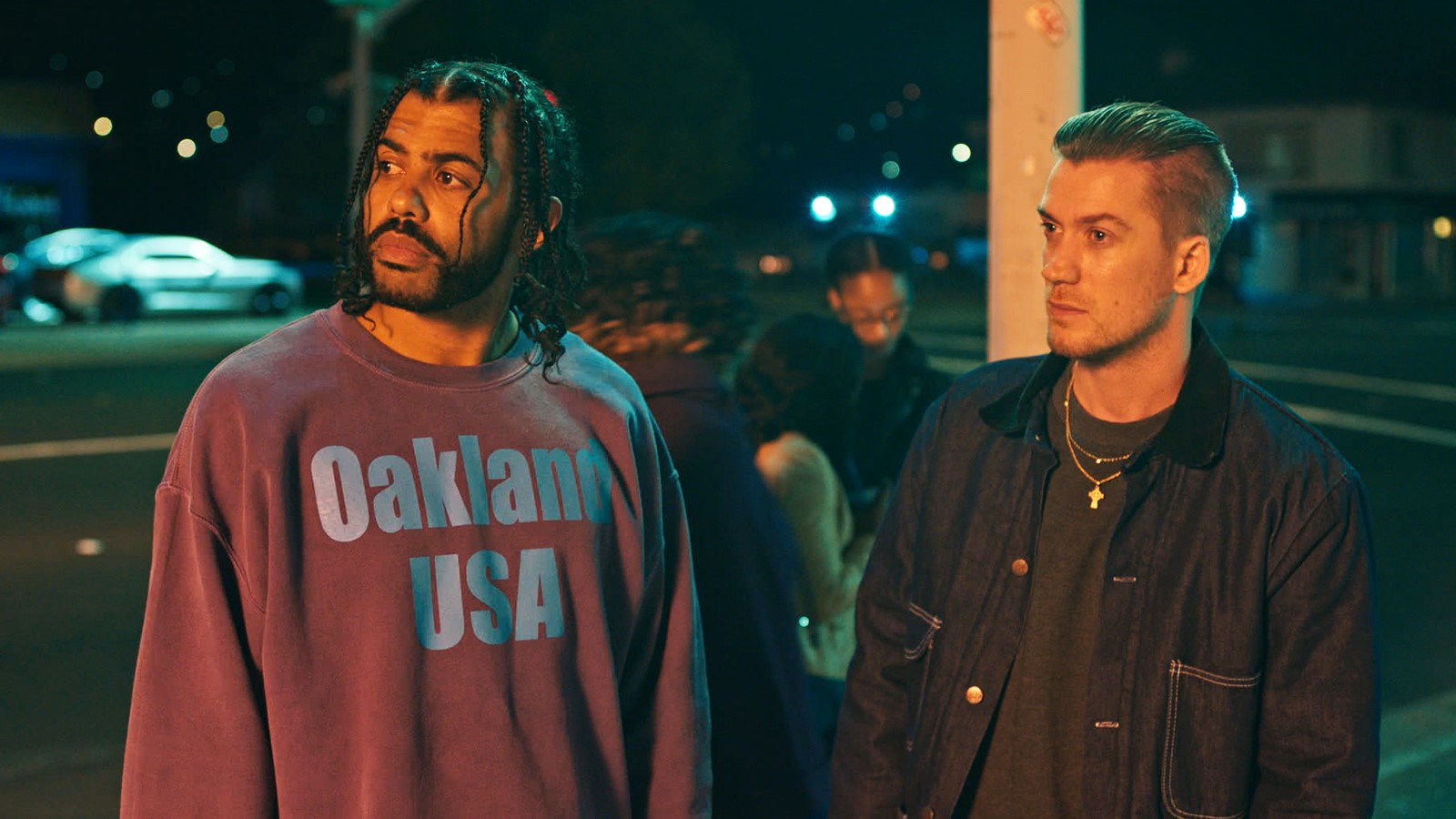By Mark Saldana
Rating: 4 (Out of 4 Stars)
As I sit and ponder the profound impact of this film on my emotions, I am nearly overwhelmed. This amazing movie, which I had the opportunity to see at this year’s SXSW film festival, works on so many emotional levels. It delivers the expected laughs which come from a buddy comedy, but also has the power to wreck one’s heart when things get serious. It also has the ability to anger, frighten and enlighten by tackling social issues timely and relevant to all Americans. With Blindspotting, writers Rafael Casal, Daveed Diggs and director Carlos Lopez Estrada have not only made one of the best films of the year, but also one of the more important films of this century.
Set in modern day Oakland, California, the residents of this city already have enough problems with crime, violence and questionable police behavior, but now must face the inevitable and not so welcome changes that come with gentrification. Long time resident Collin (Daveed Diggs) was away for a while, doing time for a crime resulting from a heated altercation. However, he has been back at home serving his parole without any problems or serious lapses in judgment. This hasn’t always been easy, though. Collin’s best friend Miles (Rafael Casal) continues to have a fiery temper and a penchant for guns and trouble. Though Miles always claims to have Collin’s “back,” Collin begins to wonder if his buddy isn’t partly responsible for his current situation.
As Collin approaches the final days of his parole, and is set to be released from his halfway house, things get rather messy and take a heavy toll when he witnesses a highly questionable killing of a black Oakland resident by a white police officer. With a rush of mixed emotions regarding his situation and the current state of Oakland, Collin feels lost and distraught. He begins to question the true value of his friendship with Miles and fears for the dark uncertainty of his future.
I was absolutely blown away with this film. I left the screening feeling I had seen the best picture of the year. Now I know that was a bit premature given that I saw the film in March, but this movie has really stayed with me ever since. Now, I have since begun to realize that at the end, I might not feel exactly the same about this film since I first saw it, but there is no denying its genuine power to move people emotionally.
I still stand by my feelings that this film is one of the year’s best, but after experiencing the ingenious madness that is Sorry To Bother You, it has now been a tougher call to label it at number one.
Still, it is a glorious time for African-American and culturally diverse cinema. Since last year’s critically acclaimed Get Out, and this year’s Black Panther, diversity is making its way into theaters, allowing new voices the opportunities to reach audiences. This is so important, perhaps more than ever and is definitely long overdue.
Blindspotting is yet another phenomenal culturally-driven film which addresses the problems of race relations, gentrification, gun fetishism and police brutality. Writers/stars Rafael Casal, Daveed Diggs and director Carlos Lopez Estrada have made a truly exceptional film which channels the emotions and tenacity of Spike Lee (Do The Right Thing), John Singleton (Boys ‘N The Hood), and the Hughes Brothers (Menace to Society), but also offers its own style, rhythm, and wit.
Both Casal and Diggs are no slouches at all when it comes to acting as well. Both deliver tremendous performances which I hope get the attention of awards voters. The movie also can boast superb acting by Janina Gavankar, Jasmine Cephas-Jones, Ethan Embry, and Tisha Campbell-Martin.
Now that both Sorry To Bother You and Blindspotting are in theaters and earning nearly equal amounts of critical acclaim, I hope they both get the attention of awards voters, as both films accomplish so much cinematically. More importantly, though, I hope both movie reach the hearts of many viewers because their messages are so important, timely and truthful. Realizing the current state of affairs and learning from it, is how real changes are made. These films are game changers on the big screen, but have the potential of being game changers in the real world.
